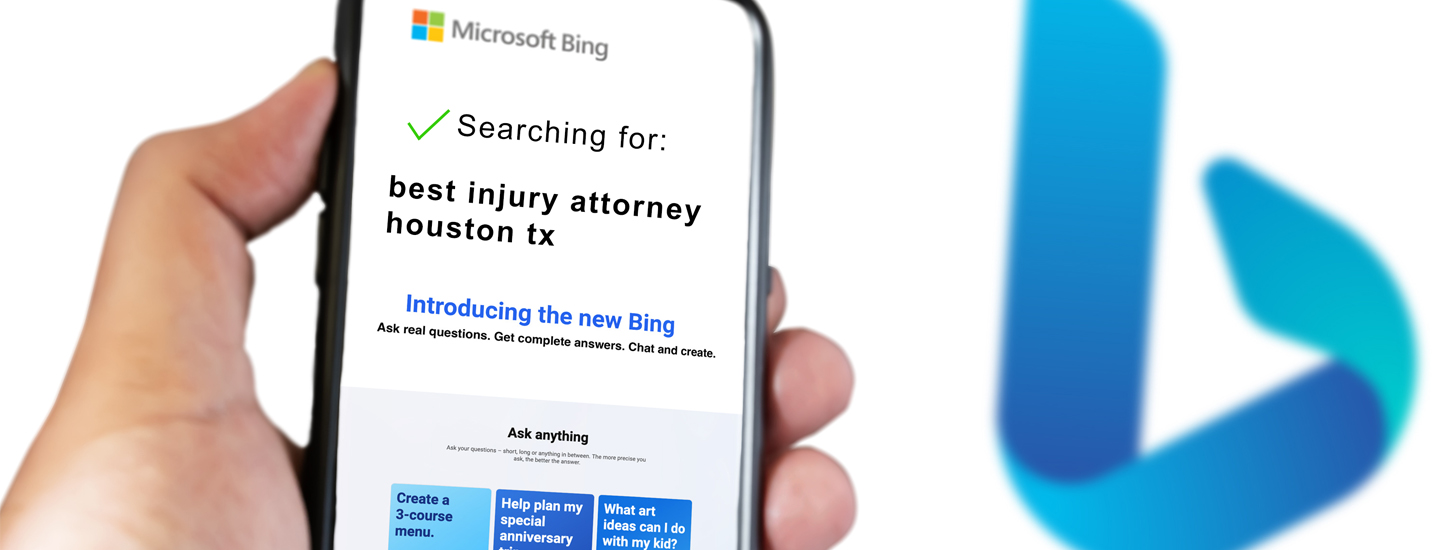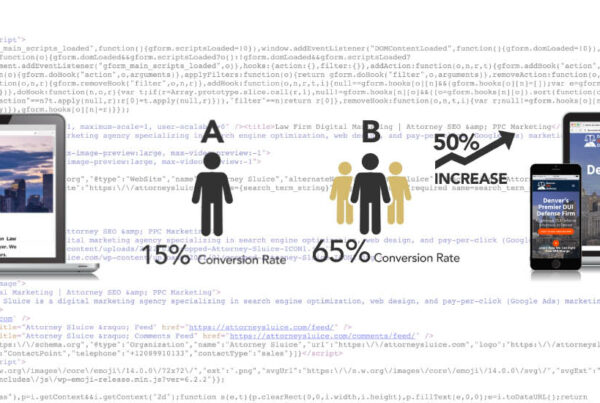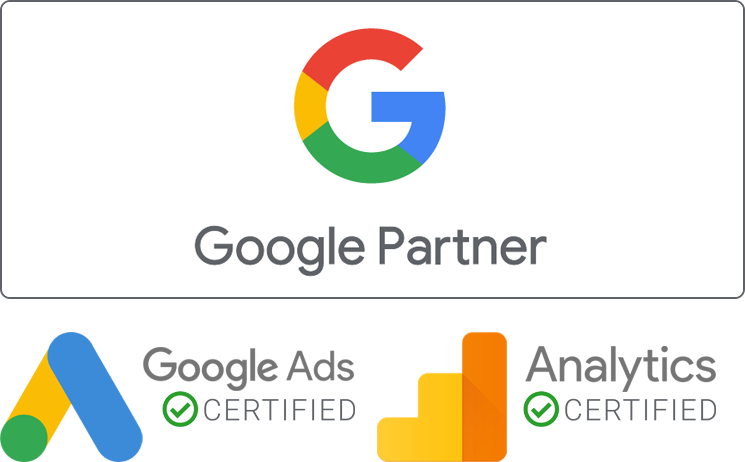With the release of OpenAI’s ChatGPT, many of our clients have asked how it may affect their current marketing efforts. Artificial intelligence (AI) will in fact transform the digital marketing landscape. But how? Will it make your current efforts obsolete, or can you still use the same marketing strategies you’ve always relied on? The truth is, AI search can either be a friend or foe to your digital marketing efforts, depending on how you approach it.
In this blog post, we’ll explore the potential impact of AI search on digital marketing for lawyers and law firms, along with what you can do to prepare for the changes ahead. Read on to learn how you can adapt and thrive in the age of AI.
AI Search Engines: We’re Just Getting Started
Currently there are a handful of AI-powered search and chat products available, each with their own unique features and capabilities. Three of the most popular examples are ChatGPT, You.com, and Microsoft Bing. At the time of writing, Google Bard is not currently widely available yet. But when it is, it will certainly top this list as well.
ChatGPT is a large language model developed by OpenAI that uses deep learning to generate human-like responses to user queries. It works by analyzing the input provided by the user and generating a response based on its understanding of the context and the topic being discussed. On its own, ChatGPT does not produce results like traditional search engines.
For example, when asked “who is the best injury attorney in Houston Texas” here is the response:
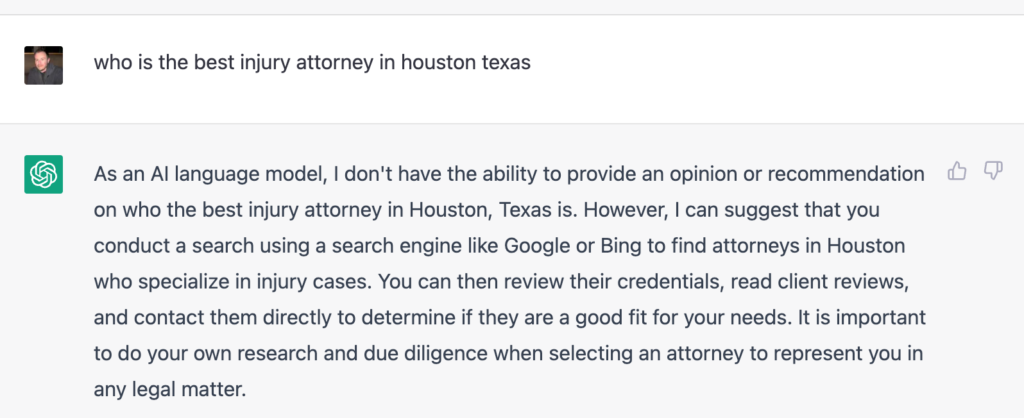
The new Bing (with ChatGPT integration) and You.com on the other hand are search engines that do produce results more like what you may expect from a traditional search engine. They both use natural language processing and machine learning to provide more relevant and concise answers to user queries.
For comparison, here are the responses from Bing and You.com when asked the same question as above:
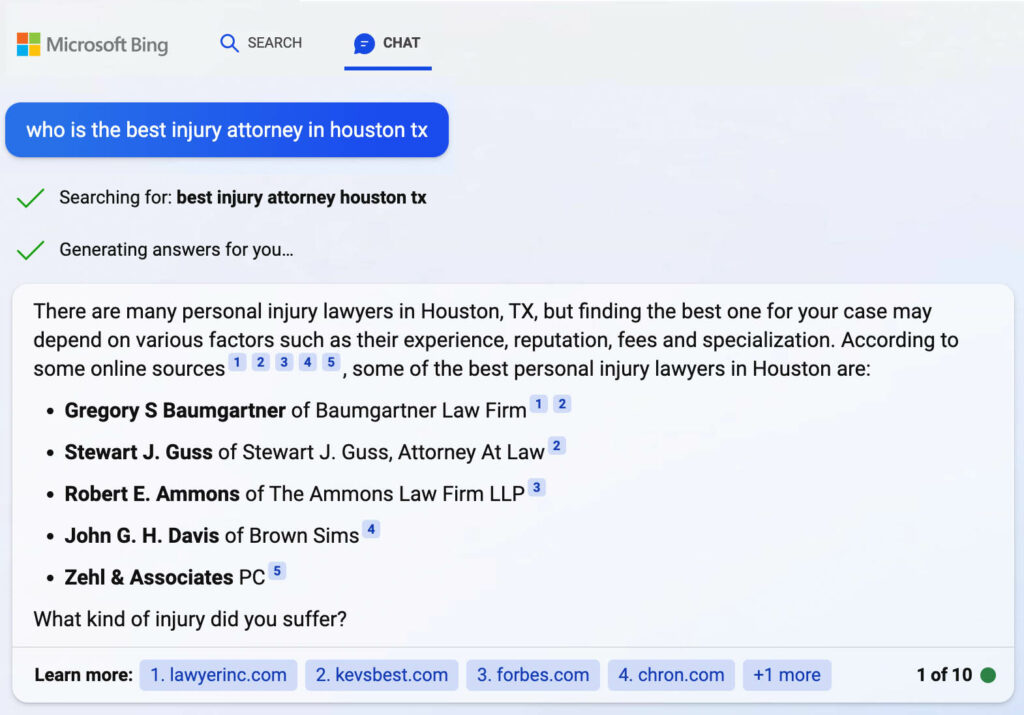
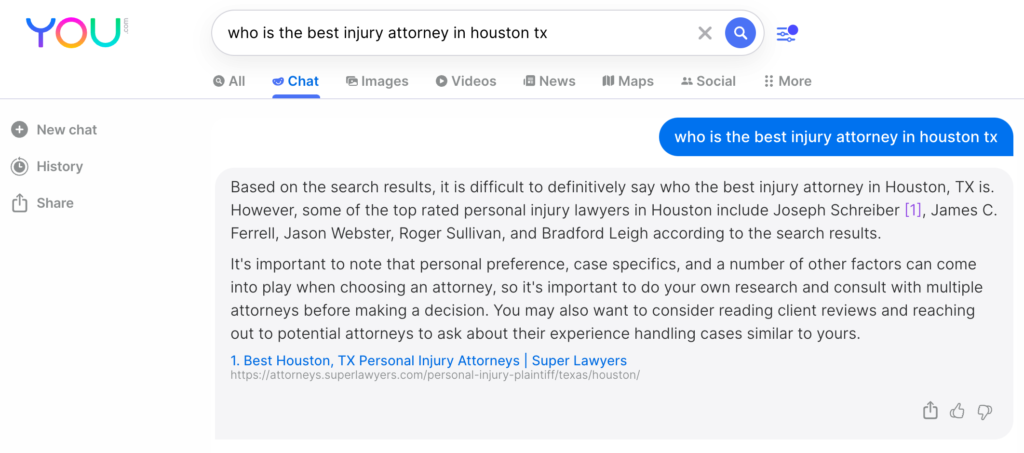
As you can see, the responses are entirely based on citations from the internet. None of which are particularly authoritative. They just simply have the right keywords. Well, that’s not very sophisticated or advanced. Why is that?
Two Types of AI
There are two main types of AI. The first is what is called narrow or weak AI. This type of AI is designed to perform a specific task or set of tasks and is not capable of general intelligence. Narrow AI systems are trained on specific datasets and are optimized to perform a particular function. Examples of narrow AI include chatbots, recommendation systems (like search engines), and self-driving vehicles.
The second type of AI is called general or strong AI. This type of AI is designed to be capable of performing any intellectual task that a human can do. General AI would be able to reason, solve problems, learn, and understand natural language in the same way that a human can.
Currently, no system exists that has achieved general AI, but research is ongoing in this area. Some experts believe that it could happen within the next few decades, while others think that it could be centuries away, or may never happen at all.
That said, all current AI systems are considered narrow or weak. This means their responses are going to remain based from the information they are trained on (like listings and citations from the internet) and therefore remain somewhat predictable.
Staying Ahead by Understanding How Search Will Evolve
Our surveys show that when hiring an attorney, people prioritize two things: specialization in the relevant area of law and experience in that same area.
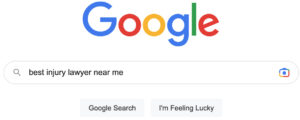 People typically use a search engine by typing “injury lawyers near me” or “injury lawyer Houston” (a quick, simple query). They are looking for a list of results because they know that is what Google has traditionally provided. They understand from experience that when they ask who is “the best” attorney, currently they end up with keyword stuffed pages instead of a factual result.
People typically use a search engine by typing “injury lawyers near me” or “injury lawyer Houston” (a quick, simple query). They are looking for a list of results because they know that is what Google has traditionally provided. They understand from experience that when they ask who is “the best” attorney, currently they end up with keyword stuffed pages instead of a factual result.
Users then must determine on their own which attorney is actually “the best” or the most experienced from that list. Typically, this is done by comparing online reviews and looking at the content on the attorney’s website. These are all extra steps the searcher must take on their own to find “the best” attorney available in their area.
Understanding and keeping in mind that Google and Bing want to produce the best experience and results for their end user so that they will come back and use their service over and over is important.
With this in mind, we can infer that Google and Bing are going to use AI to move beyond their traditional methods of ranking websites with backlinks and keywords. Machine learning is going to figure out what we already know from our survey mentioned above, and they are going to start to provide those results to searchers.
How Attorneys and Law Firms Can Leverage this Information and Use It to Their Advantage
As shown in the examples above, the responses we got when asking “who is the best injury attorney in Houston Texas” were based entirely on sources from the internet. Just like traditional SEO, if you’re listed in the right places, you can be found when a potential client is searching for your legal services using an AI search engine.
And just like with traditional SEO, the “best” and “most experienced” attorneys won’t necessarily automatically end up at the top. It will be the attorneys who are the best at digital PR, and who have a strong digital brand presence who will win.
Just as with Google’s EAT algorithm update, search engines of tomorrow will use signals from the internet to train their AI on what constitutes the “best” attorney when asked.
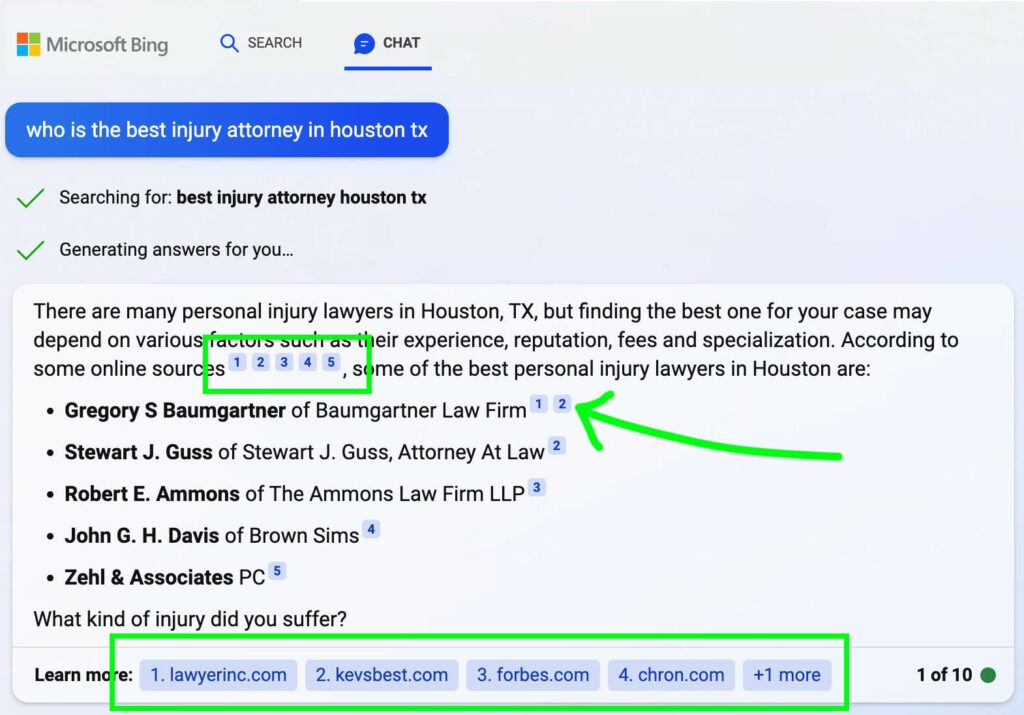
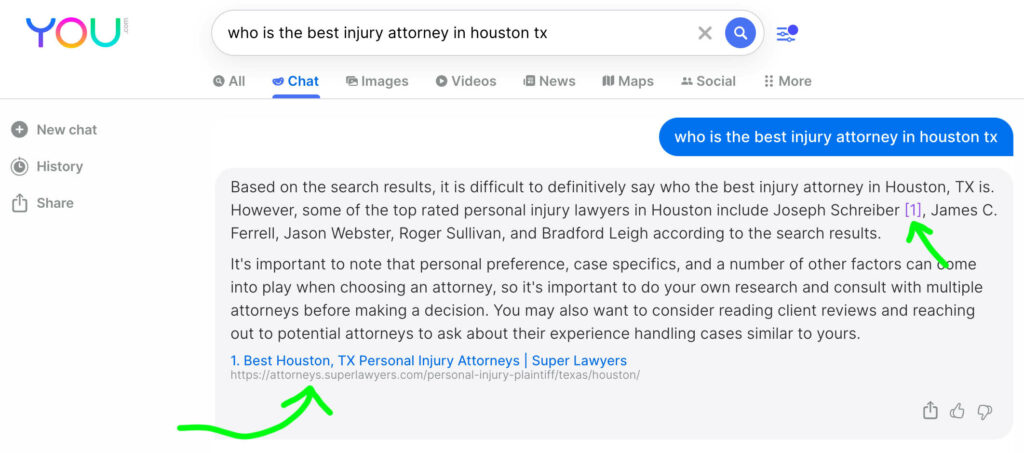
Focusing on your digital brand is not only key to marketing your legal practice today, it will also be the difference maker in marketing your legal practice or law firm online tomorrow.
What is Digital Branding?
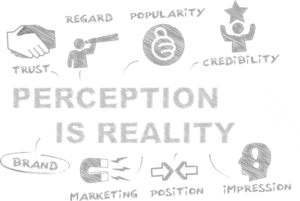 Digital branding refers to the use of digital media and technology to establish and promote a brand’s identity and presence online. Digital branding can help attorneys and law firms build awareness among their target audience by creating a consistent and compelling online presence.
Digital branding refers to the use of digital media and technology to establish and promote a brand’s identity and presence online. Digital branding can help attorneys and law firms build awareness among their target audience by creating a consistent and compelling online presence.
This is not only what Google is looking for and what you want to optimize for in modern SEO, but also what AI will use and get better at identifying in the future. By starting now, you will have a major head start.
Actionable Steps to Take Today to Optimize for AI Search and Strengthen Your Digital Brand
Currently Google uses two main factors when ranking your website in their search engine. Those are backlinks (links from other websites to your website) and the content of your website (what your website says).
Current searches using an AI powered search engine are showing that what other websites are saying about you is one of the main factors of ranking results in their searches.
Here is a list of things you can do now to start optimizing so that your legal practice or law firm can be found when a potential client conducts an AI powered search:
- Claim reputable online profile pages: Fill these online profile pages out completely using detailed and specific information that speaks to the area(s) of law you practice and your level of experience.
- Join associations such as the ABA or other associations relevant to your area(s) of practice. If possible, contribute as an author to these sites and develop author pages on as many as possible.
- Create a professional website showcasing your expertise and accomplishments. If possible, limit the practice areas listed on your website. Again, “general practice” attorneys are going to have a harder time standing out in search engines going forward.
- Produce and publish high-quality content on your website: This includes blog posts, articles, videos, and other types of content that showcase your expertise and provide value to your prospective clients.
- Encourage online reviews and testimonials: Positive reviews and testimonials can enhance your reputation and credibility and are a big part of your digital brand. They have also been shown to improve overall conversion rates.
- Monitor your online reputation: Attorneys and law firms should regularly monitor their online reputation and respond to any negative comments or reviews promptly and professionally.
Conclusion
While AI chat and search tools have exploded onto the market with exciting new capabilities, the transition to people using them to find local service provides (such as attorneys) will not happen overnight. But remaining aware of them, and how your prospective clients will likely start using them is critical to the future of your digital marketing efforts.
The good news is that everything you can do to optimize for AI search is also extremely productive for your current online marketing efforts as well. By focusing on your digital brand, you can continue to dominate search engine results today, and into the foreseeable future.
About the Author
Chris is a legal marketing consultant who has been helping attorneys and law firms grow their revenue and scale their legal practices for the past 13 years. His areas of expertise are in content marketing, search engine optimization (SEO), pay-per-click (PPC), digital PR & branding, and conversion rate optimization (CRO).


